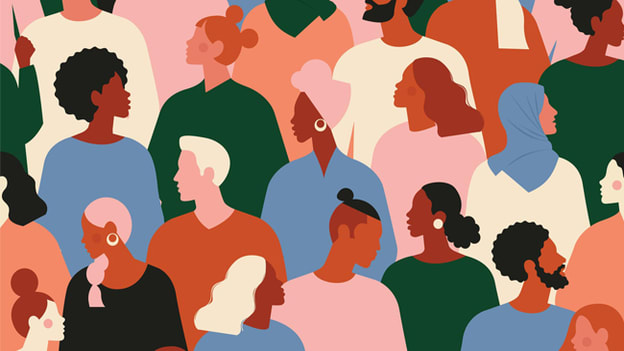Diversity and Inclusion: Best practices for an evolved workplace

An evolved workplace is diverse and inclusive. Employees aspire to work in environments that are conducive to engagement, alignment, employee-friendliness, innovation as well as performance-focused. This can be achieved by ensuring diversity and non-discrimination across the company.
Surveys indicate more than 70-80% of job seekers consider diversity and inclusion as an important factor when considering job opportunities. Apart from being a desirable factor among potential employees, diverse and inclusive companies are believed to bring innovation and make a change in the industry with strategic outcomes. According to leading analysts, organisations that are racially and ethnically diverse are more likely to have 30 to 40% financial returns than the corresponding national industry medians.
Cultivating a workplace culture that is diverse and inclusive
Employees should be the ambassadors of diversity; they should represent the company’s inclusive and diverse work culture. In today’s day and age, companies increasingly deal with teams spread across the world. A constant effort to create various opportunities that strengthen and develop a diverse global workforce is crucial. The organisation should empower employees and leaders to become synergists for diversity, not only within the company but also with the customers by supporting global clients spanning cultural, political and social differences.
Let’s dig deep into some practical strategies that promote diversity:
Equality of Opportunity
Equality of opportunity is key to ensuring diversity within the organisation. The leading positions in the corporate world do not rely on gender, religion, financial status, etc., but skills like attention to detail, perseverance, passion, determination, community building and long-term strategic vision. Ultimately, professional growth in the organisation should be driven by merit where career advancements are purely based on an individual’s attitude, qualification, performance and ability.
Discrimination-Free Culture
A workplace should be free from any form of discrimination, be it gender, caste, disability, age, ethnicity, financial ability, marital status, etc. Clear and well-defined policies must be set out to discourage partiality in any form. HR leaders must be proactive in leading the way to bring diversity to organisations. Companies should gradually take initiatives to bring in meaningful mentorship for potential candidates, be it men or women, to help excel in their career.
Foster an Inclusive Space
Though often paired, diversity and inclusion are clearly distinct. Lack of inclusion can alienate a section of the workforce in a diverse workplace. Focusing on inclusion in a diverse workplace makes employees feel comfortable. For example, working with a global workforce means working with people who speak different languages. Speaking a regional language with an assumption of their colleagues knowing the context can exclude them from the topic in question. Reinforcing the practice of speaking a common language within the company would make everyone feel inclusive. The entire organisation should be educated on practices for inclusion. Frequent feedback to capture employees’ experience in the team/organisation can serve as a reality check on the company’s inclusion goals. Organisations should also be inclusive, in the sense, of valuing everyone's feedback and providing avenues for people to share constant feedback.
Hire People Based on their Capabilities
Recruitment at any level should be free from bias. Regardless of the position you hope to fill and the department, there are well-qualified despite their physical challenges, gender, or ethnicity. It is ultimately what an individual brings to the table for the company to progress to the next level. Companies should audit their current recruitment process to see where barriers exist when it comes to ensuring diversity.
Constantly Review Organisational Policies
The organisations should communicate the company policies to all their employees appropriately and sensitively. Any non-compliance can be raised to the HR team or the CEO. Most importantly, practices and policies surrounding promoting diversity should be revisited for appropriateness and relevance at least once a year.
Organisations need to be supportive and open-minded to help everyone perform well in their current role and climb into leadership positions. In the rapidly evolving world, organisations that have a diverse and inclusive culture will be able to solve the problems of the future better. It is time to take big decisions from a balanced perspective to ensure the growth of the economy.
This article was originally published in March 2021.












